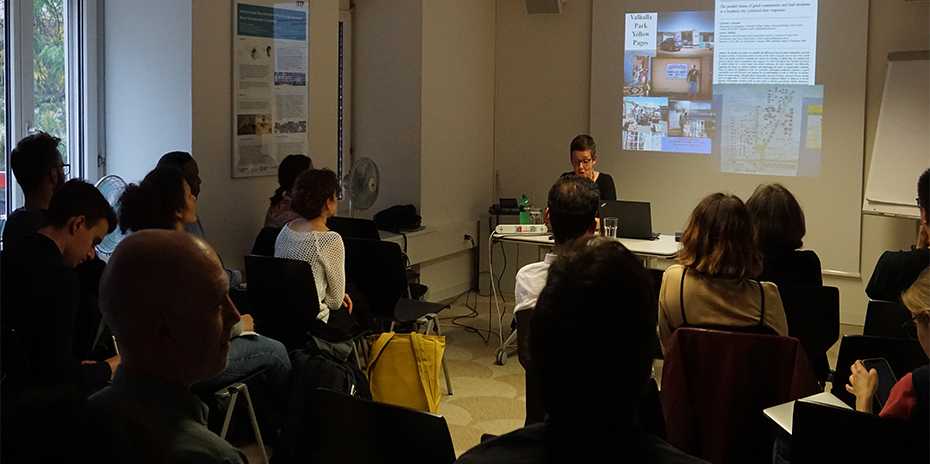High Stakes, High Hopes: Urban Theory in Partnership
We would like to warmly thank Prof. Sophie Oldfield for her visit to the ISTP and her interesting and insightful talk on collaborative urban theory.
by Gian Luca Gehwolf

“How do your theories translate into the ordinary ways that people speak?” This was the question that Prof. Sophie Oldfield was asked by her Professor during her PhD defense. A question that she struggled to answer. The question stayed with her and wrapped her brain around in the library for a long time and finally lead to an articulation for a university proposal. “Six months later I am in the so-called field in Cape Town” Prof. Oldfield explained. The chairman of the informal settlement asked her how her research fits with their real struggle. How can scholars be engaged into to real time problems? These questions have shaped how she thinks about research.
After this short introduction, Prof. Oldfield read from her recently published book with the title “High stakes, High Hopes: Creating collaborative urban theory in South”. The book creates urban theory in the political and physical realities of everyday southern city life. The work examines the high stakes at play in a decade-long research and teaching partnership, which has brought the university of Cape Town and the neighborhood's civic organization in Cape Town to research the city together to collaboratively build urban theory. This approach brings together multiple voices, registers, and accounts, shaping urban theory in shared spaces across the city. In this context of extreme urban inequality, this approach to theorizing immerses the personal, political, and public struggles through which urban theory is generated, expertise opened up, and solidarity and commitment built. Prof. Oldfield mentioned the problematic situations that emerged from this collaborative approach. In one project they tried to create a “Yellow Page” for the Valhalla Park township, where they tracked and printed the names of the local businesses in the township. The documentation/scanning of the neighborhood lead to xenophobic reactions, where Somali-owned shops were damaged and burnt by the locals. The partnerships and collaboration are full of potential conflict, where there are lots of debates and conflicts on the university level and in the neighborhoods. Nevertheless, Prof. Oldfield stressed that there were also positive feedbacks from the residents, as the mapping of the neighborhood gave the people the feeling of existing, of being recognized in some kind of way, a small but concrete acknowledgment.
Finally, Prof. Oldfield highlighted the importance that activate theory is entirely depended on the participating people, where they bring the thinking and the practice together, or how she called it, “theorizing in the flesh of practice”. The narratives of the collaboration should be used as the foundation for establishing the theory.
The ISTP would like to thank Prof. Oldfield for giving an interesting insight in active collaborative urban theory and hope to welcome her again at ETH Zurich in near future!
To get a broadened sense of the ISTP and our topics of interest and past seminars visit our Colloquium page.